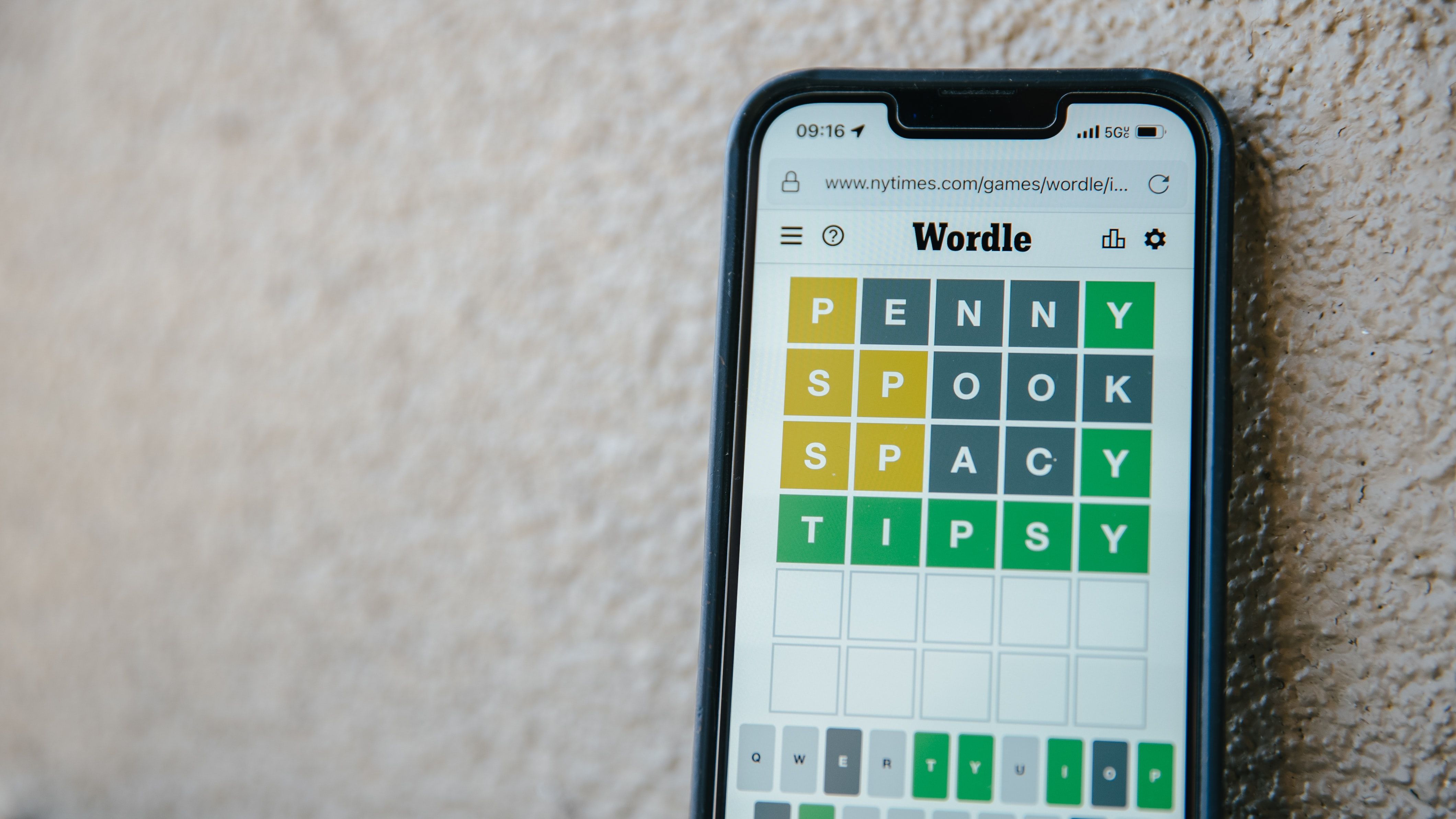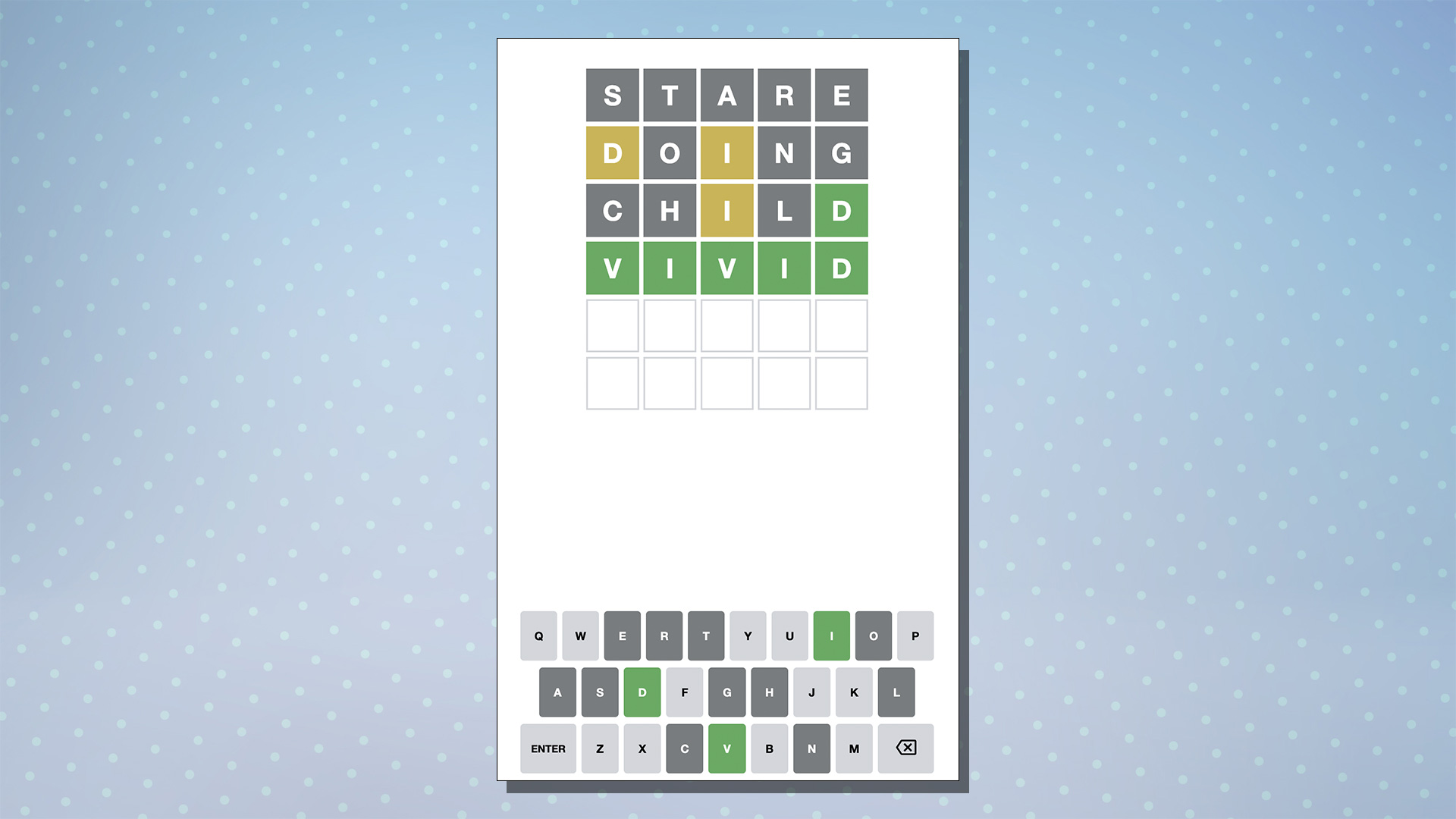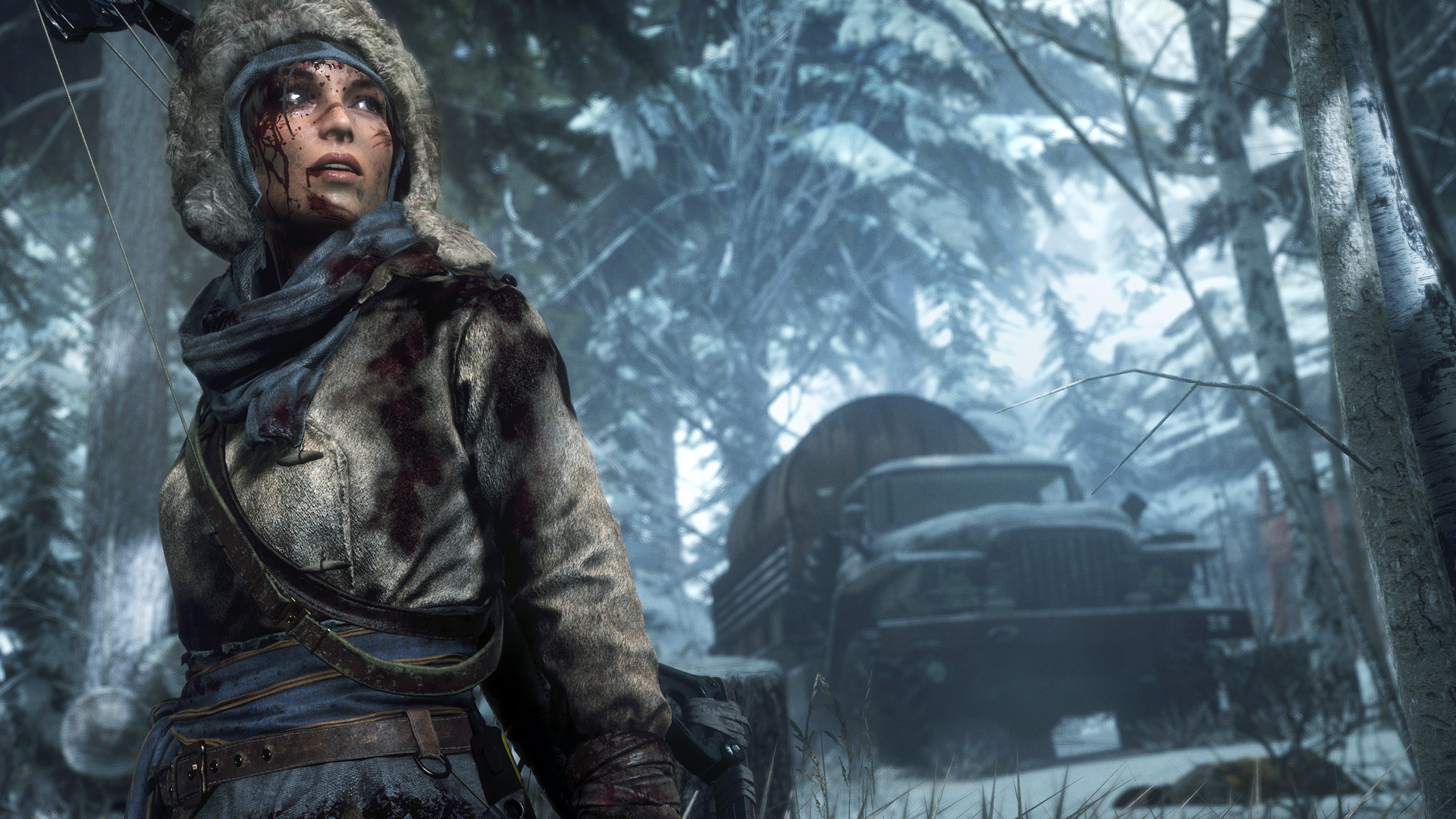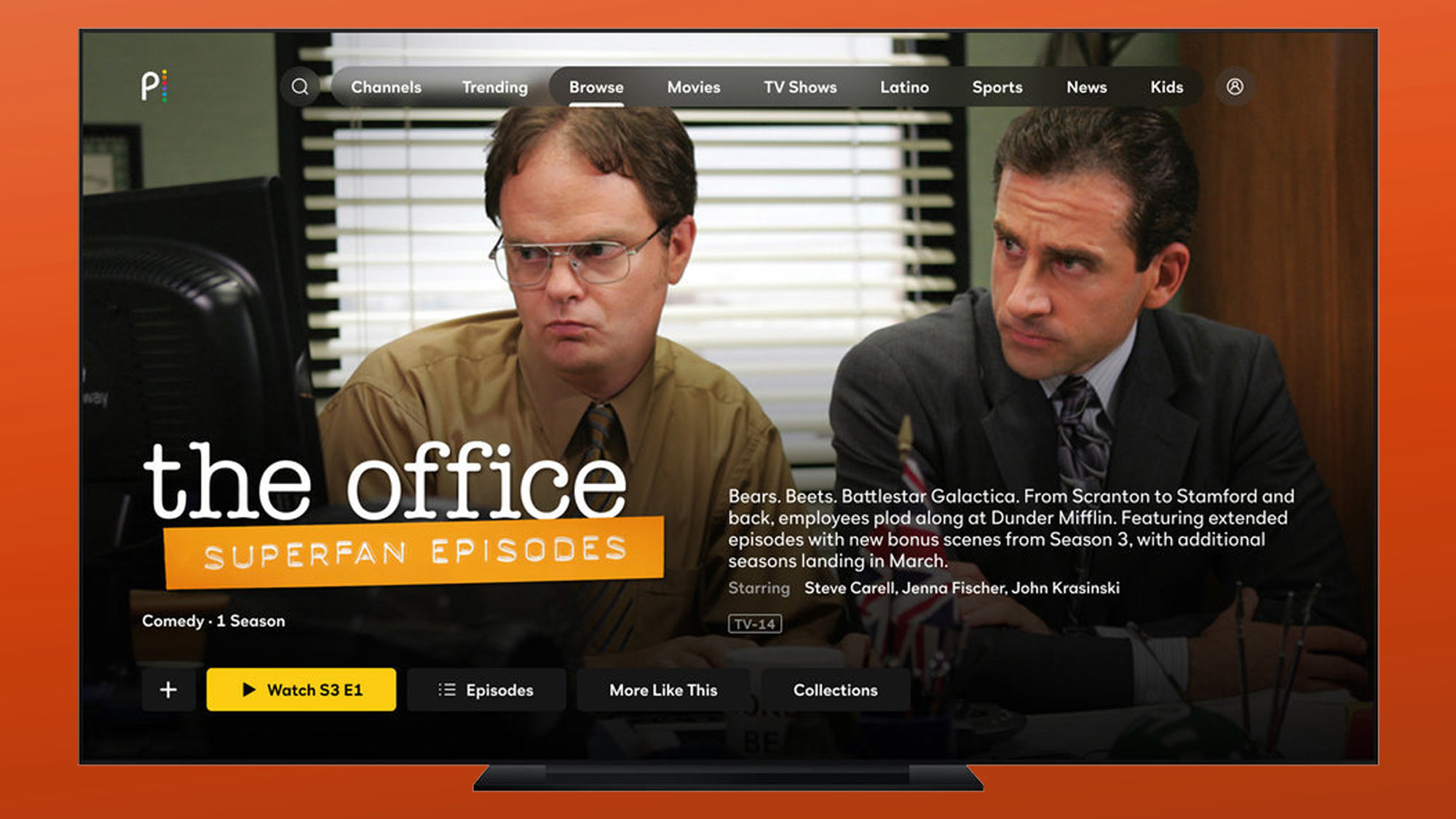Are you looking to improve your Wordle game and increase your chances of guessing the correct word? If so, you've come to the right place! In this article, we will explore the best starting words for Wordle and the strategies behind them. Whether you're a beginner or a seasoned player, these expert-recommended tips will help you become a Wordle master. So, let's dive in and uncover the secrets to success in this addictive word-guessing puzzle game.
Is it beneficial for your initial Wordle word to contain many vowels?
Certain individuals swear by using words like ADIEU, AUDIO, ABOUT, CANOE, or OUIJA as their starting word in order to utilize three or four vowels right off the bat.
This alternative approach can be advantageous since every Wordle solution contains at least one vowel, so it makes sense to identify it as early as possible. However, I personally do not recommend going down that route. ADIEU is not a valid Wordle answer, so you will never achieve a 1/6 score with it. AUDIO is decent, but it lacks the letter E, which not only happens to be the most common vowel but also the most frequent letter in the game. The same goes for ABOUT.
CANOE is not bad, but the consonants C and N are not as prevalent as S, T, or R, which are much more common. Therefore, while you gain in one aspect, you lose in another. As for OUIJA, it is merely a nonsensical suggestion. Although it lacks an E, it includes a J, which is the second least likely letter to appear in the game at all.
Even so, vowels are crucial in the game overall, so it is wise to consider them carefully when contemplating a second word. Speaking of which...
Optimal Second Words for Wordle
Let's approach this issue holistically first. The English alphabet consists of 26 letters. Among those, five (or six, including Y) are vowels, which form the foundation of most words.
Therefore, at a basic level, any combination of five letters that helps eliminate vowels earlier on will significantly reduce the potential word choices.
The Power of Quordle: Experience ultimate chaos with the four-at-once Quordle
With this fundamental principle in mind, we can immediately identify several ideal starting words. There may be others, but ADIEU, AUDIO, and OUIJA all possess four vowels. While we cannot be certain if any yellow or green letters appear more than once, such as in the words "sweet" or "radar," we can at least identify critical letters from the start.
Credit: Brandon Bell / Staff via Getty Images
This strategy suffices for most individuals. Starting with words that are particularly rich in vowels will consistently give you an advantage when solving Wordle puzzles. However, it is not as straightforward as it seems since not all letters are equally common. While vowels do appear in nearly every word, certain vowels and consonants are more prevalent than others.
Another factor to consider is the Wordle dictionary. Although the game recognizes over 10,000 words as valid guesses, only a fraction of those actually qualify as potential solutions. The New York Times even reduced the solution list after acquiring Wordle. Therefore, while you could attempt to use a more obscure word like AUREI (the plural form of aureus, an ancient Roman gold coin, for those curious!), it will never be the correct answer for the day.
If relying on vowels alone is insufficient and you wish to cover some of the more commonly occurring consonants, RAISE is an excellent starting word. It covers the three most common vowels and the two most prevalent consonants found in dictionaries.
14 Alternatives to Wordle: Because one Wordle a day is not enough
What, then, is the absolute best starting word for Wordle?
For those who do not wish to risk feeling as though they are cheating Wordle, it may be best to stop reading here. You can utilize the strategies and thought processes outlined above to gain an advantage in solving each day's new puzzle, which should be plenty for most players.
However, for those who enjoy delving deeper into the intricacies of the game, mathematician and computer scientist Grant Sanderson, known as 3Blue1Brown on YouTube, has an excellent video that applies the principles of "information theory" to Wordle. Sanderson even created testing programs to analyze factors such as letter frequency in order to determine the absolute best starting word.
The video can be dense at times, with a heavy focus on mathematical language. However, Sanderson's friendly demeanor and his willingness to take the time to explain complex concepts make it a captivating watch.
In this initial video, Sanderson ultimately concludes that CRANE is the optimal starting word for Wordle. However, it is not quite as straightforward as that. Sanderson's breakdown centers around letter frequency, and CRANE is just the initial step in collecting information. It is only the "best" if you can use the information gathered from the first word to inform a near-perfect second guess.
Whew! Feeling overwhelmed yet? Do you wish you had stopped reading after the first section? That makes two of us! But wait, we are not done yet.
A week after posting the aforementioned video, Sanderson released another titled "Oh, wait, actually the best Wordle opener is not 'crane'...." It turns out there was a slight bug in his original test program. Sanderson clarifies that the bug "affects a very small percentage of cases," so it does not invalidate the main lessons from the first video.
Without delving too deeply into the mathematics, the bug specifically relates to solutions that contain multiple instances of the same letter and how Wordle handles such cases.
Sanderson felt compelled to release a second video because, although "very little of substance actually changes" from the original, the final conclusion regarding the optimal starting word is affected. The same caveat still applies: an optimal starting word is only as effective as the subsequent guess that utilizes the information gleaned from the first one.
With this context in mind, the revised ideal starting word according to Sanderson is SALET (an alternative spelling of "sallet," a type of helmet worn during the Middle Ages #themoreyouknow). TRACE and CRATE also work nearly as well. Especially since both TRACE and CRATE have the potential to be Wordle solutions.
One of the most important takeaways from these dives into mathematical rabbit holes is that, as mentioned earlier, a first guess is only powerful when considered in the context of the guesses that follow. That is the essence of Wordle: each guess provides information that narrows down the list of potential subsequent guesses.
But wait, we are not finished yet! There is another approach to solving Wordle that diverges from the intended gameplay. Instead of using each previous guess to inform the next one, some players prefer to focus solely on letter frequency and attempt to eliminate the most common letters, be they vowels or consonants, from consideration, regardless of any clues obtained from previous guesses.
This approach effectively "wastes" the initial guesses on predetermined choices aimed at reducing the number of possible letters to work with. However, it is important to note that this strategy will not work if you are playing Wordle in "hard mode," as each subsequent guess must include any confirmed letters from the previous guess that appear in the solution.
The Strategy Behind the Optimal Wordle Starting Words
Wordle experts recommend selecting words as your opening guess that contain a significant number of vowels. The reasoning behind this is simple: the English alphabet consists of only five vowels, and the majority of words contain one or more of these vowels. By identifying which vowels are present in the solution, you can quickly narrow down the list of possible words.

This leads individuals to believe that words such as "ouija," "adieu," "audio," and "raise" are ideal initial guesses in a game of Wordle. However, a more scientific approach to solving Wordle challenges the notion that starting with a vowel-heavy word is effective. While it is true that there are thousands of words containing vowels, identifying an E or an A in the Wordle puzzle does not significantly contribute to solving the daily Wordle.
Some players opt for words that contain a high number of consonants, such as "nymph," "fjord," "waltz," "gybes," and "quick," in order to eliminate as many letters as possible within the six guesses. However, this approach is also flawed since Wordle answers often include repeated letters, as in the words "trite" or "runny."
There are others who choose words like "train," "roast," "irate," or "roate" because they contain letters that frequently appear. However, on days when the Wordle answer is a word like "jazzy" or "khaki," this approach proves ineffective.
So, if conventional strategies do not yield optimal results, what does?
The Best Wordle Starting Words According to Experts
At first glance, one might not consider a word game to be a favorite pastime of mathematicians and data analysts. However, given that Wordle is, in essence, a probability game, it has managed to attract such a crowd.
Several theories have been put forth to determine the best word to start a Wordle game, and the results are intriguing. Here are some of the top contenders for the best starting words in Wordle, as suggested by experts.
1. Crane
According to Grant Sanderson, a popular mathematics YouTuber known as 3Blue1Brown who offers visual explanations of "higher mathematics," the best Wordle starting word is "crane."
For those interested in the mathematical methodology behind this claim, here is a brief summary. Sanderson conducted a simulation of various words using the Wordle answer sheet, applying concepts from information theory. Through this analysis, he found that "crane" produces the lowest average number of subsequent guesses. It may be somewhat anticlimactic after all the mathematical effort, as one might expect a more unusual word like "waltz" or "fjord." However, it appears that there is power in simplicity.
The WordleBot developed by The New York Times, which analyzes completed Wordles and offers tips for improvement, also identifies "crane" as one of the best Wordle starting words.
2. Salet
Another mathematician, Alex Selby, claims on his website that "salet" is the optimal word to begin a game of Wordle. Selby's assertion is based on an algorithm-driven strategy.
According to the algorithm, "salet" leads to an average of only 3.42 additional guesses to reach the answer. Grant Sanderson of 3Blue1Brown attests to this conclusion in a subsequent analysis, reaffirming his opinion on the best starting word.
As of now, WordleBot's top recommendation for a Wordle starting word is something similar: "slate." While the letter arrangement may differ slightly, it has a similar composition and offers comparable chances of narrowing down the remaining solutions.
3. Trace
Daniel Kats, a machine learning researcher who analyzed the Wordle answer sheet and documented his findings on GitHub, suggests that "trace" results in the fewest remaining possible solutions after the first guess. Kats' research indicates that it typically takes a player an average of 3.58 attempts to arrive at the correct word after using "trace" as their initial guess.
Trace also ranks high on WordleBot's list of preferred starting words.
The Mathematical Approach to Selecting the Best Wordle Starting Words
Analyzing the 2,309 answers that Wordle offers each day sheds light on why WordleBot recommends these six specific words.
During my time at Tom's Guide, TechRadar's sister site, I scrutinized the game's code and searched for patterns among the solutions.
One noteworthy finding was that the most common letters in Wordle, in order, are E, A, R, O, and T.
Most common letters in Wordle overall:
- E (1,230 appearances in Wordle answers)
- A (975)
- R (897)
- O (753)
- T (729)
- L (716)
- I (670)
- S (668)
- N (573)
- C (475)
Most common starting letters in Wordle:
- S (365)
- C (198)
- B (173)
- P (149)
- T (141)
- A (304)
- O (279)
- R (267)
- E (241)
- I (201)
- A (306)
- I (266)
- O (243)
- E (177)
- U (165)
- E (318)
- N (182)
- S (171)
- A (162)
- L (162)
- E (422)
- Y (364)
- T (253)
- R (212)
- L (155)
Why SLATE? The reasoning is clear even without a strong mathematical background. S is by far the most common starting letter, and the remaining letters are also quite common throughout the game.
Personally, I prefer a word that includes an R instead of an L because R also frequently appears in -ER words. For a long time, my preferred starting word in Wordle has been STARE, which WordleBot seems to appreciate as well.
Does it work? Well, in my case, I am currently enjoying a streak of nearly 500 consecutive correct answers!
The MIT Verdict on the Best Wordle Starting Words
While I do not claim to be a mathematical genius, those seeking genuine insights into the best starting words for Wordle can refer to the opinions of true experts.
For instance, researchers at MIT have published a paper that definitively identifies SALET as the best Wordle starting word.
If you are unfamiliar with the term "salet," you are not alone—I had to look it up myself. Apparently, it refers to a 15th-century helmet, but more importantly, Wordle does accept it as a valid guess.
According to the MIT researchers, SALET provides a 1% better chance of narrowing down the options in Wordle, resulting in an average of 3.421 guesses required to solve the puzzle—a slight improvement over SLATE. However, if you start with SALET every day, you will never achieve the coveted 1/6 score simply because SALET is not among Wordle's 2,309 answers. Similarly, past Wordle answers have included CRATE, SLATE, and TRACE, so it may be wise to avoid using them for the same reason. Additionally, CARTE is not a valid answer.
Considering all this information, SLANT and CRANE might be the best choices for Wordle starting words. WordleBot rates both of them highly, with a score of 99.

The Importance of Vowels in Wordle Starting Words
Another prevalent approach is to select a starting word that contains a significant number of vowels. This strategy is grounded in the fact that almost all Wordle answers contain at least one of the five most common vowels (A, E, I, O, or U). Identifying these vowels early on can provide valuable insights into potential solution words.
Words like ADIEU, AUDIO, and CANOE are frequently favored by those who adopt a vowel-focused strategy, and they are not necessarily poor choices.
However, from a mathematical standpoint, there are better options. In fact, the MIT researchers specifically call out AUDIO, stating that it uncovers only 1.320 colored tiles in the first move, while SALET typically reveals 1.683.
That being said, please refrain from selecting OUIJA, EQUAL, or QUEUE. While these words do contain three or four vowels, they also have highly uncommon letters like Q or J. J, in particular, is the least common letter in the game, appearing in only 27 answers, making it a wasted guess.
Avoid these choices at all costs.
What is Wordle and what is WordleBot?
Wordle is an immensely popular word guessing game that can be played directly in a web browser, without the need to download an app. Simply visit the Wordle website to begin playing. The game challenges players to guess a five-letter word using six chances, and each day a new word is generated. The word is the same for all players worldwide. For a more comprehensive overview of how the game works, you can consult Pocket-lint's detailed guide here.
The New York Times, which acquired Wordle, introduced WordleBot in the spring of 2022. WordleBot is an online tool accessible through a web browser, but it is exclusively available to paying subscribers of The New York Times Games, News, or All Access.
WordleBot analyzes completed Wordle puzzles to provide players with overall scores (for luck and skill) on a scale from 0 to 99. It also offers insights into alternative moves that could have been made during the game. WordleBot has its own dictionary consisting of approximately 4,500 words that it considers reasonable guesses. Each word is assigned a probability of being the solution based on WordleBot's calculations. You can read more about WordleBot in The New York Times' blog post.
The publication has periodically updated its Wordle assistant, including recommending new starting words to users.
In conclusion, finding the optimal starting word for Wordle can be a complex and intriguing puzzle in itself. While there are various strategies and expert opinions on the matter, the key is to consider the frequency of letters and the probability of narrowing down the possible solutions. Whether you choose CRANE, SALET, or another carefully selected word, the thrill of uncovering the hidden word remains the same. So, embrace the challenge, put your word-guessing skills to the test, and enjoy the satisfying sense of accomplishment that comes with cracking the code. Happy Wordling!





